I went to my mother’s grave and cried: Shibli Mohammad on Ekushey Padak honour

Creative pursuits can originate from a variety of sources. Perhaps the purest of artistic expressions come from the understanding of pain, turmoil and suffering of one's own life. A person who has seen the worst of life knows and appreciates life better and it is the very case with legendary classical dancer Shibli Mohammad, who just won the second highest civilian award, Ekushey Padak for his contribution in Bangladesh's art and culture scenario.
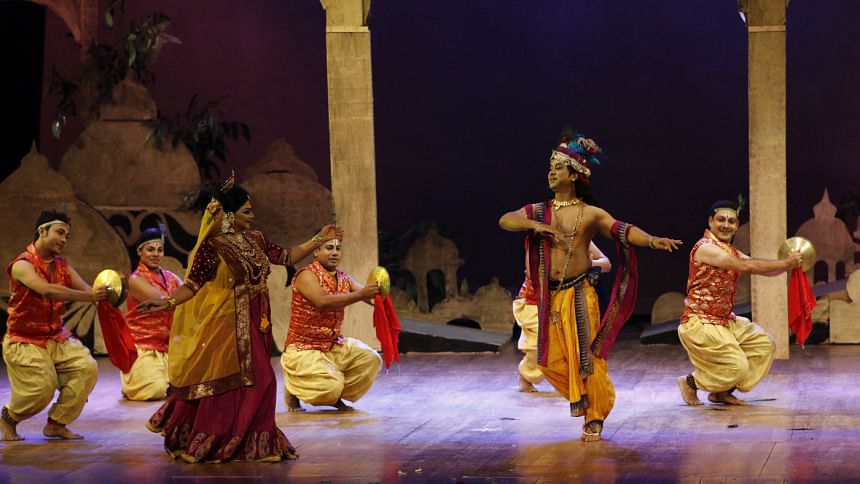
"It was probably because we as a family went through so many hurdles and sufferings in my young years, that it made me more polite, optimistic, grounded, closer to life and able to see the innate beauty of this world," stated the legendary dancer.

A trendsetter by his own merit and steadfast promoter of the inclusion of male classical dancers in Bangladesh, Shibli Mohammad is trained by one of the biggest names of classical dancing in South Asia, late Pandit Birju Maharaj, the father of Kathak dance.
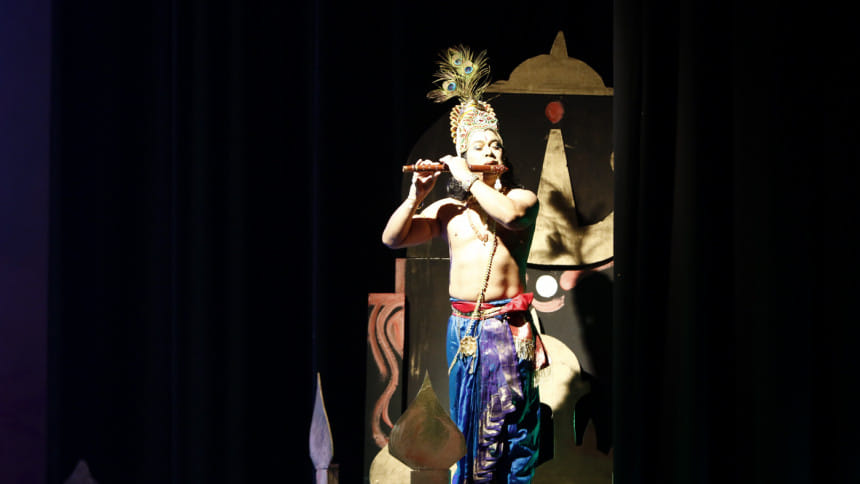
Speaking of his inspiration behind becoming a classical dancer, Shibli states, "As a family we all were inclined to different genres of cultural practices, but my biggest inspiration is my mother. My mother was gifted with fantastic embroidering skills and that became our sole source of livelihood after the Pakistani Army brutally killed my father."
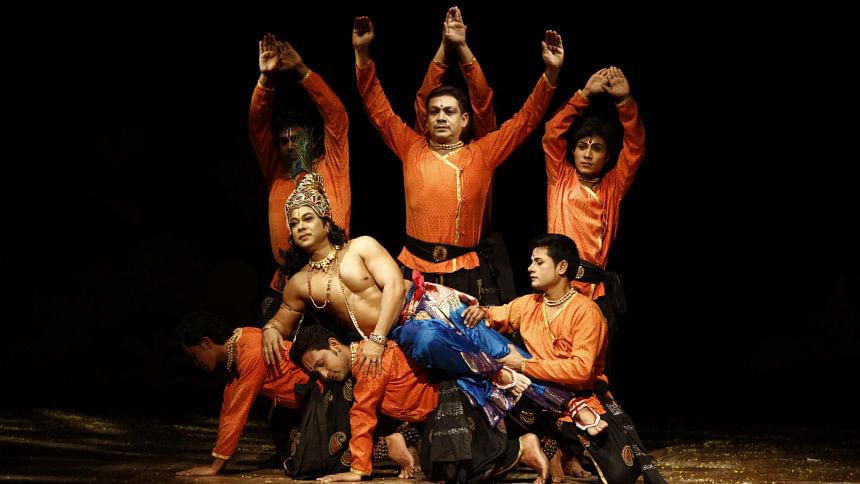
"Take my brother, Sadi Mohammad as an example. He is one of the finest Rabindra Sangeet exponents of our time, and I used to sing with him too. But it was dance that I could most relate to," said Shibli, a physics graduate from the Jahangirnagar University. He was awarded the Indian Government Scholarship to train at the Bhatkhanbe Music Institute in Lucknow, India, which changed his fate forever.
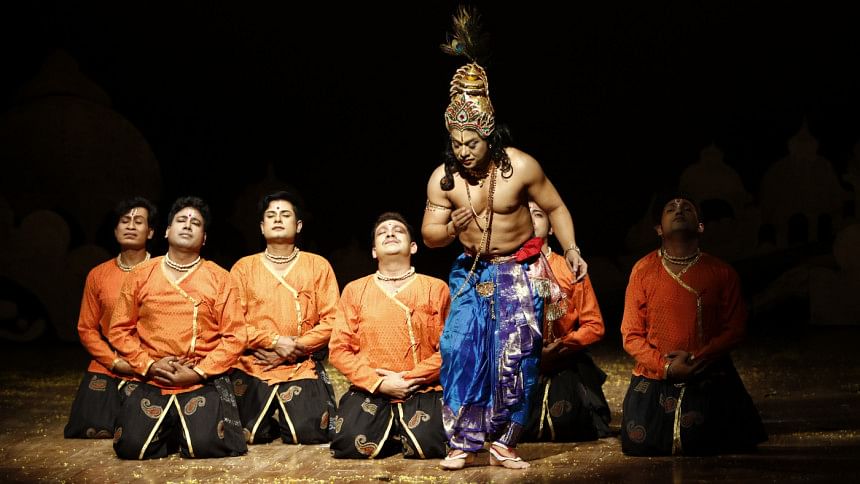
"I never had to look back after that. Dancing was what defined me innately and I just kept doing what I love and success followed me," Shibli said.
"Pandit Birju Maharaj was a great admirer of Bangabandhu Sheikh Mujibur Rahman and when I took tutelage under him, he used to call me by Bangabandhu's name out of his love for the persona and the country he represented. Guruji wanted me to spread the practices of classical dance in Bangladesh and I am trying to do just that," states Shibli, with a strong conviction.
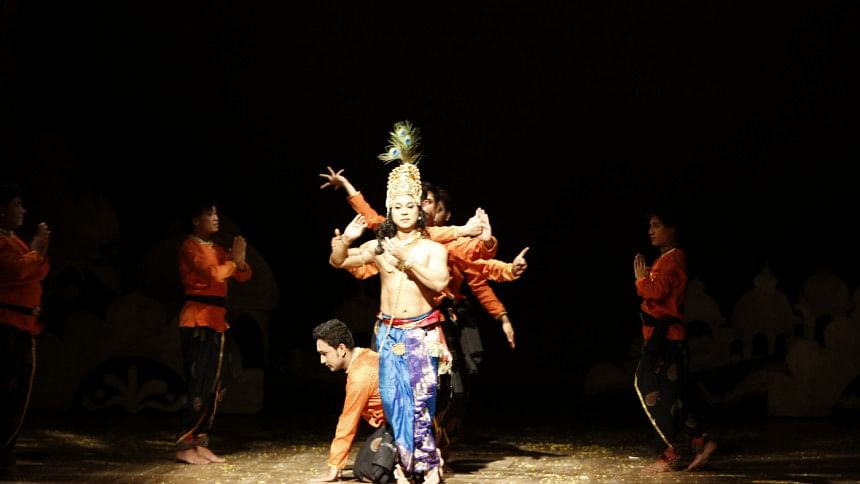
Responding to a question regarding if he had faced any stereotypes in practising classical dance as a male in a conventionally female indoctrinated dancing arena in the country, Shibli said, "Of Course I did. Firstly, my family was not ready to send me to India to become a dancer, but seeing my passion towards the craft, they agreed. When I came back with a vision to establish myself as a dancer in my country, I was mocked many-a-times, and I realised that the only way I can prove my point is by keeping up my work, and that is what I am still doing."
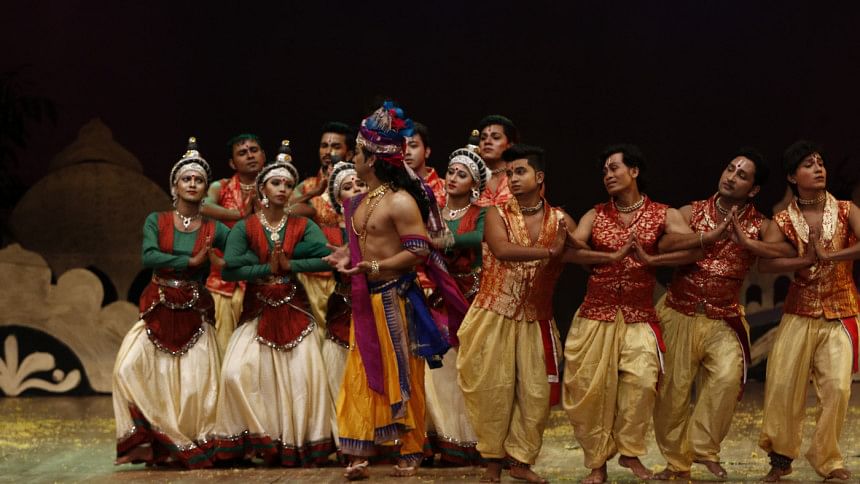
Pointing out on his decades-long legendary pairing with Ekushey Padak-winning choreographer Shamim Ara Nipa, the dancer said, "Nipa was already a star when I started my career here, and there was a scarcity of male dancers at that time. So, I got a chance to work with her in shows and later formed a divine friendship that has lasted till now."
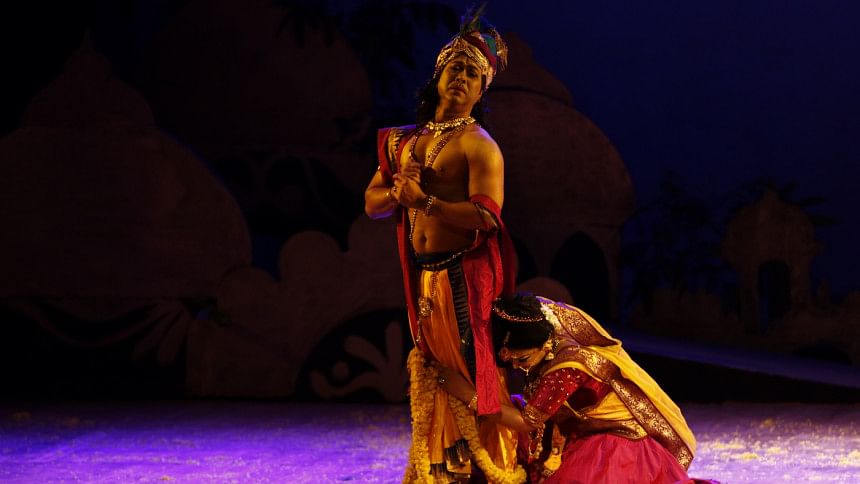
"From our earliest days on stage, we used to learn from each other, and now our chemistry has reached the point where we can predict each other's moves. Sometimes, we do not even need to rehearse ," Shibli stated with a polite smile, recounting his pairing with Shamim Ara Nipa, with whom he was famously rumoured to be in a romantic relationship.
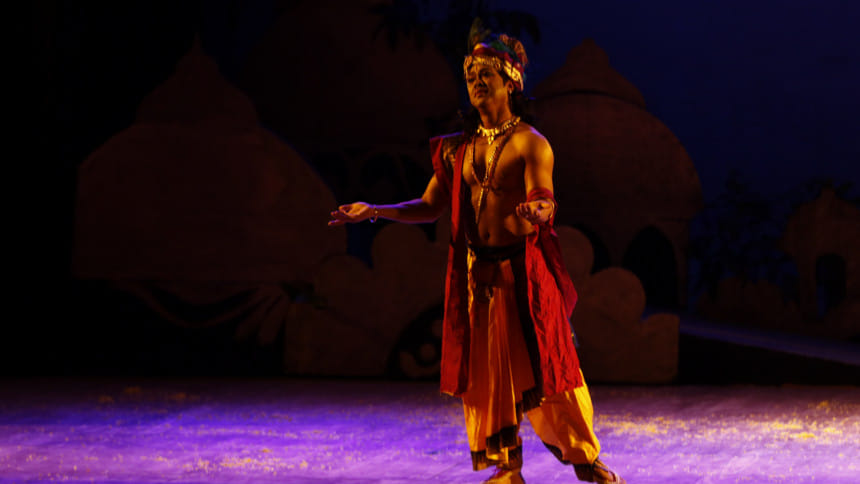
In that regard, the artiste said, "Nipa and I actually understand the reasons behind the common speculations about the manner of our relationship and we do not mind. It is very natural for people to think like that as we have been successfully collaborating for years now."
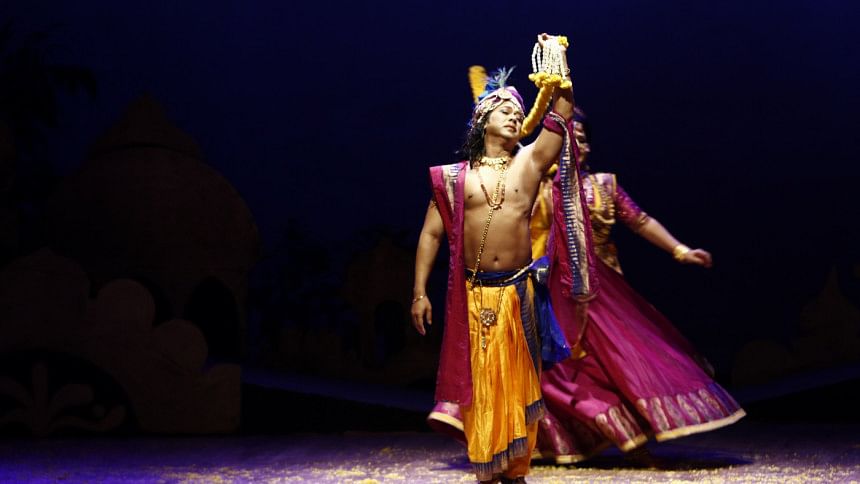
"But if you ask me, I would say that it is because of our strong, innate friendship and respect for each other that we could create that magic on stage and screen. We are best of friends," explains Shibli. "We never had time to think of anything else other than our craft and we consider our school, 'Nrityanchal' to be our creative child. Not all relationships are alike you see! We are etched together with and for our work."
Shibli Mohammad has earned many awards, accolades, recognition throughout his illustrious career, but the national recognition that he got from the state with the coveted Ekushey Padak is special to him. "I never worked for any awards or recognition but my mother, the greatest source of my inspiration, had a wish to see me with the award. The moment that I received the call, I ran to my mother's grave and cried my heart out, letting her know that I got the recognition she wanted for me."
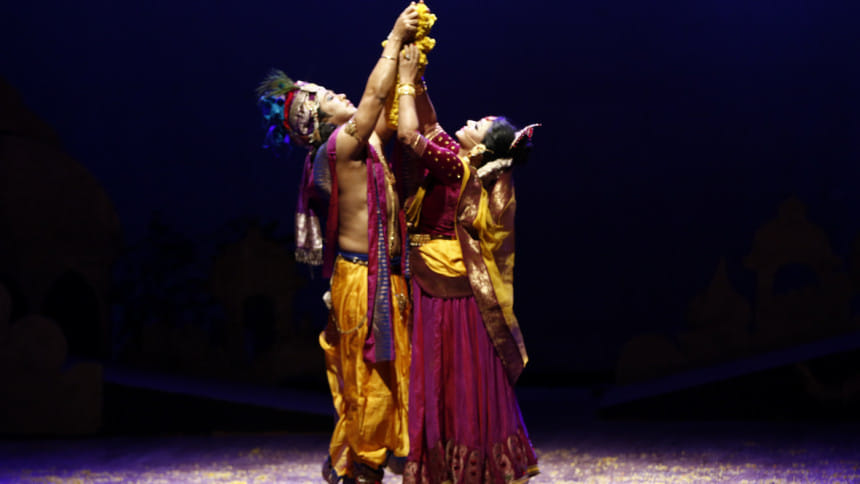
Shibli lost his father, martyr Salimullah, as he was brutally murdered by the Pakistani army in 1971. At that time, his mother, Zebunnessa, jumped from the roof of her house on Taj Mahal Road in Mohammadpur to escape from the invading forces on that fateful night of March 26. From that day, both of her legs had been rendered unusable. For a long time, she was dependent on crutches and spent the last 15 years in a wheelchair in the same house while single-handedly providing for her ten children by doing embroidery work until her death last year.

"The days of struggle really opened my eyes towards certain values, and taught me how to treat people equally. Today, when I see people hungry and sick in poverty, I remember the times when I was also living their life. While we all try to be successful, we often forget to help others and spread joy. I try as best as I can, but seeing others do the same is what will promote change," said the cultural personality.

Shibli, who achieved many things in his professional career, takes pride only in his dedication to his craft and the thousands of students he trained at the Nrityanchal Dance Company, a pioneering dance institution he co-founded with Shamim Ara Nipa.
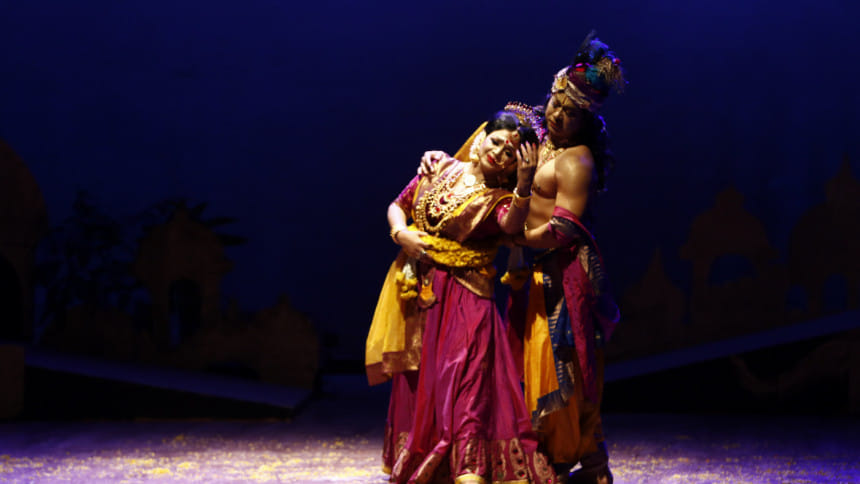
"Not only males, but physically and mentally challenged people come to Nrityanchal to learn dancing. My only aspirations are to promote dance among my students and form a kind of stipend, so that they can keep doing what they love," says Shibli, who plans to request land for building a permanent campus for his dance institution from the government.
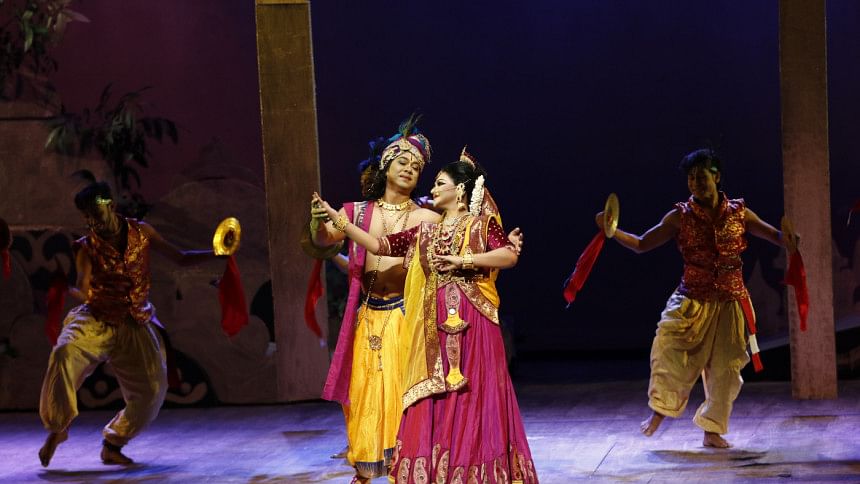
"Whatever I have, it's not mine, it's for all. I always try to donate as much as I can and I would request everyone to do the same. Only kindness can cause the rebirth of humanity and other than that a life is not worth living," concluded the larger-than-life dance pioneer.
Apart from the prestigious Ekushey Padak, Shibli also received a number of prestigious awards, including the UNESCO award for Best Bangladeshi Dancer, the George Harrison Award for Dance, the BACHSAS Award, the Prothom Alo Award and the Lux Channel i Award, among others.

 For all latest news, follow The Daily Star's Google News channel.
For all latest news, follow The Daily Star's Google News channel. 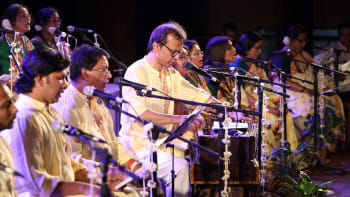



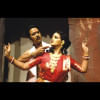
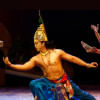

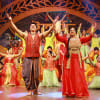


Comments